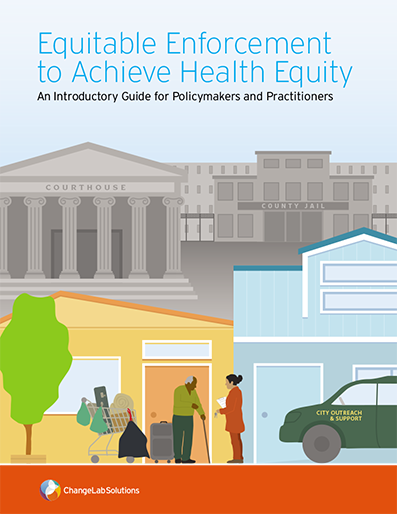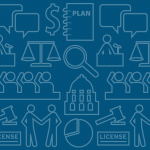Equitable Enforcement to Achieve Health Equity
An introductory guide for policymakers & practitioners
Equity-informed enforcement of public health policies can help break the cycles of injustice and inequitable health outcomes experienced by underserved communities.
Public health policies have catalyzed major health improvements for people living in the United States. But without enforcement — that is, a means of incentivizing compliance — these policies are less likely to produce their intended effects. Equitable enforcement is a process of ensuring compliance with law and policy that considers and minimizes harms to people affected by health inequities.
Enforcement actions taken in the name of public health can sometimes harm, discriminate against, or otherwise undermine the health of the very people whom the laws are meant to protect. In fact, enforcement that is carried out inequitably can create, maintain, or exacerbate health inequities. Equitable enforcement, by contrast, can hold wrongdoers accountable while protecting the health and well-being of individuals and the wider community.
By posing a series of questions to consider when drafting, implementing, and enforcing a policy, ChangeLab Solutions' resource helps policymakers, advocates, and enforcement officials explore (1) the equity implications of traditional public health enforcement tools, and (2) strategies to avoid unintended negative consequences when addressing violations of the law. Equitable Enforcement to Achieve Health Equity also discusses best practices in design and development of enforcement provisions to help avoid inequitable impacts and promote community health.
Equitable enforcement is crucial for measures and policies that affect public health in areas such as retail licensing, employment, education, and housing. Read the full guide to learn more about equitable options for administrative, civil, and criminal enforcement in a wide variety of public health policy areas.





